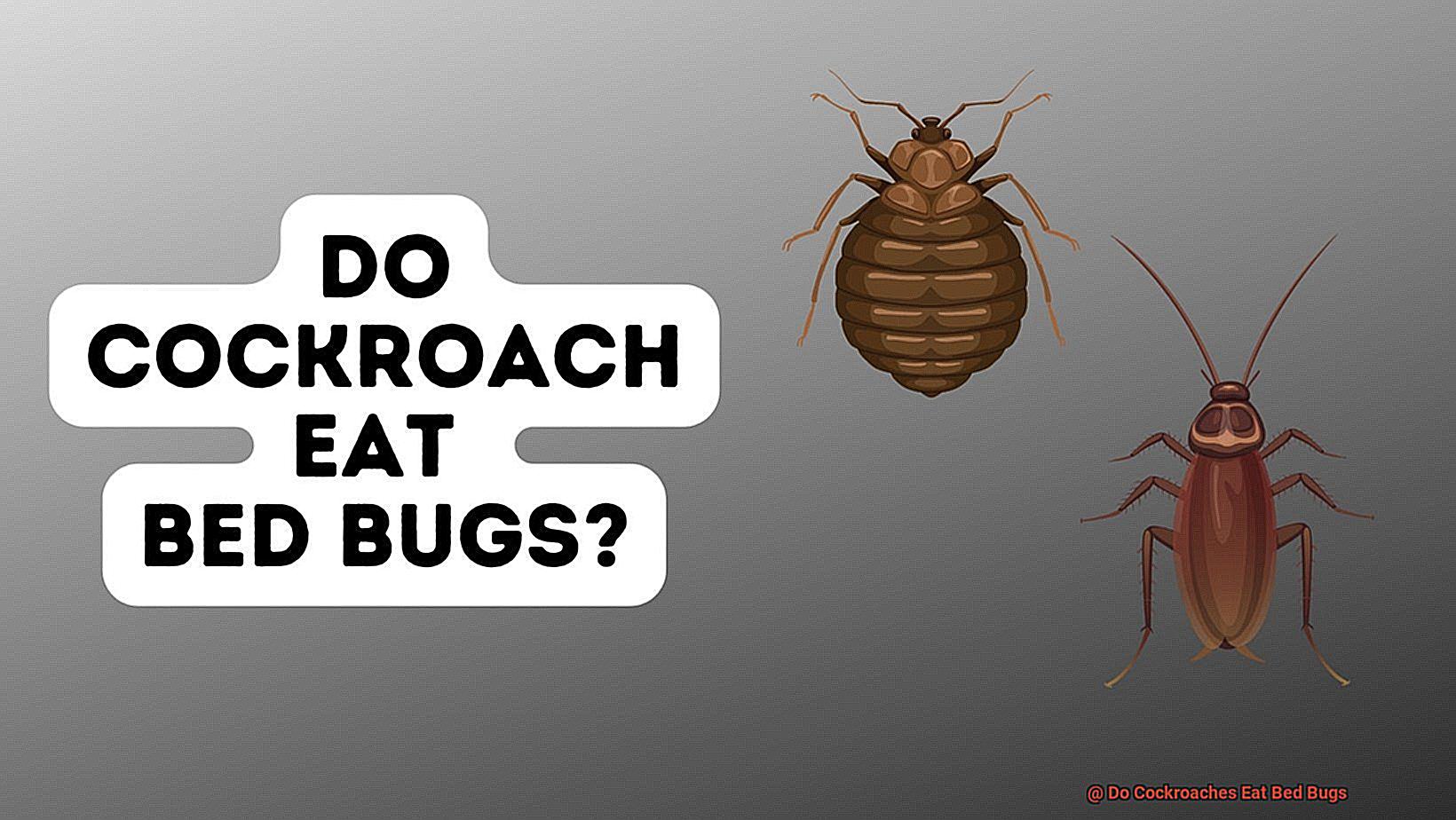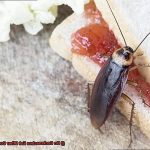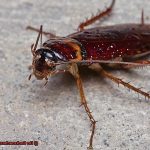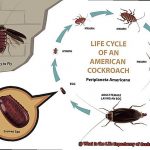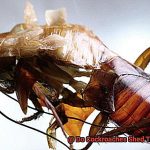As a homeowner, the mere thought of bed bugs infiltrating your sanctuary is enough to make you shudder.
These tiny pests can cause a plethora of problems including itchy bites and constant discomfort. You’ve probably tried everything from chemical sprays to mattress covers in an effort to rid yourself of these unwelcome guests.
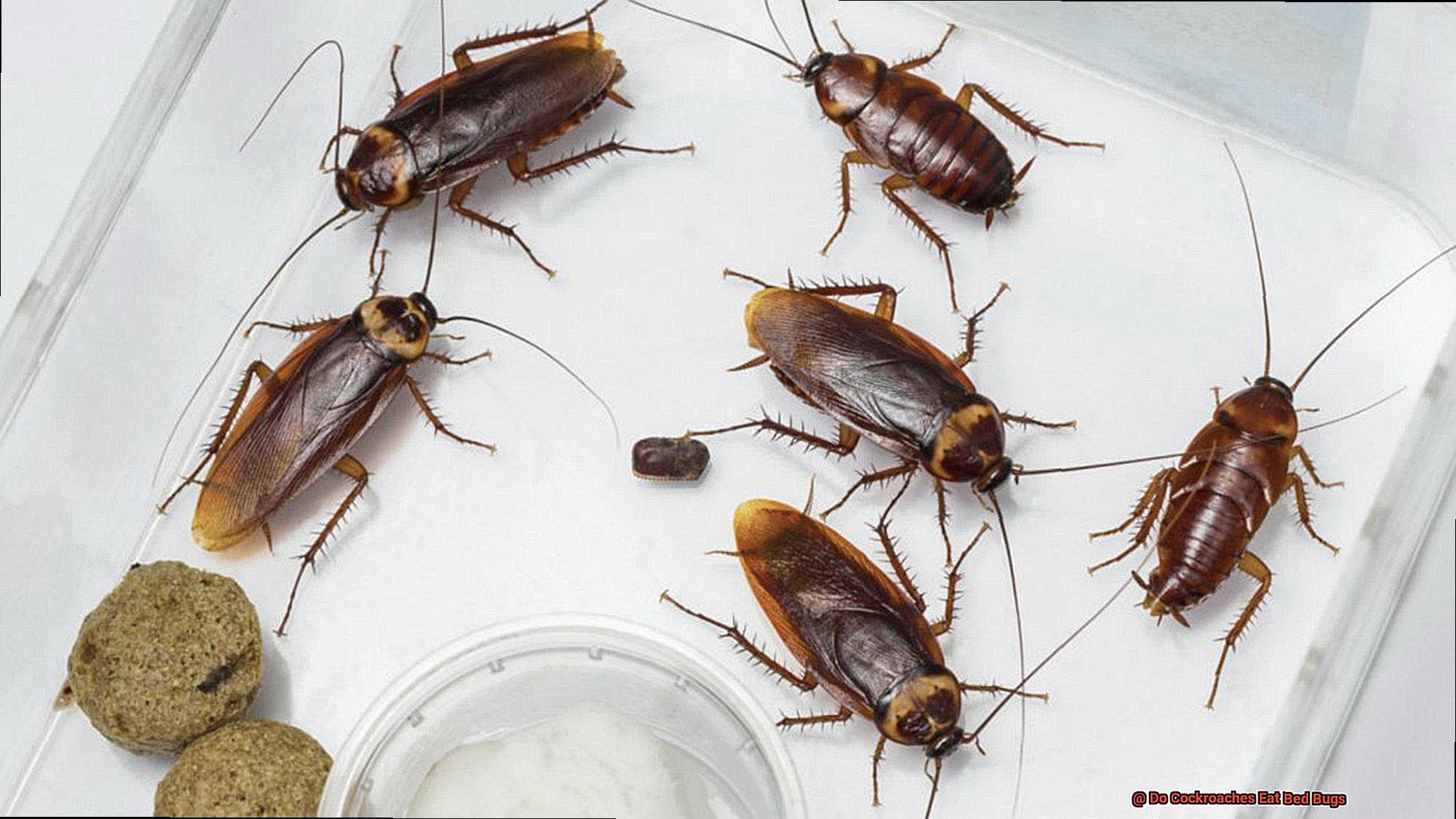
But have you ever considered calling upon the help of cockroaches? It may sound peculiar, but these creepy crawlies are known for consuming almost anything in their path, bed bugs included.
While having cockroaches as housemates may not be the most desirable option, it’s worth exploring whether they could provide a natural solution to your bed bug problem. But before you start welcoming cockroaches into your bedroom with open arms, let’s examine the relationship between these insects and bed bugs in more detail.
In this post, you’ll have a better understanding of whether or not cockroaches truly are your allies in the battle against bed bugs.
Do Cockroaches Eat Bed Bugs?
Contents
Yes, you heard that right. These creepy crawlies are known for their scavenging ways and will eat almost anything they come across, including bed bugs.
Cockroaches are natural predators of bed bugs and will readily eat them, as well as their eggs and nymphs. This makes them a natural form of pest control for bed bug infestations.
In fact, in some cases, they may even be more effective at eliminating bed bugs than chemical treatments. However, before you start welcoming cockroaches into your home, it’s essential to note that they are not desirable house guests either.
Cockroaches can carry diseases and cause health problems for humans. Therefore, while they may help control bed bug populations, it is still crucial to eliminate cockroach infestations as well.
What Does the Research Say?
If you’re battling a bed bug infestation, you may be wondering if cockroaches could be the answer to your prayers.
After all, cockroaches are known to eat a wide range of food sources, including other insects. However, is there any concrete evidence that cockroaches will eat bed bugs?
Let’s take a closer look at what the research says. While it’s true that cockroaches are capable of scavenging on dead bed bugs or their eggs, there is no conclusive proof that they actively hunt and feed on bed bugs.
In fact, some studies suggest that cockroaches may even avoid areas where bed bugs are present due to the chemical signals that bed bugs release. So while you might hope that cockroaches would take care of your bed bug problem, it’s not a reliable solution.
It’s important to note that even if cockroaches were effective at controlling bed bugs, they still pose their own health risks. Cockroaches can spread disease and trigger allergies in humans, making them an unwelcome sight in any home.
Therefore, it’s crucial to take proactive steps to prevent and eliminate both pests.
Why Do Cockroaches Not Prey on Bed Bugs?
Firstly, it’s important to note that while both insects belong to the same family, they have vastly different feeding habits.
Cockroaches are known for their ability to eat almost anything, including other dead insects and even other roaches. Bed bugs, however, are exclusively bloodsuckers.
This difference in diet is one of the main reasons why cockroaches do not prey on bed bugs. But wait, there’s more – bed bugs have a unique defense mechanism that makes them unappetizing to many insects, including cockroaches.
They have a waxy coating that makes them tough to digest and helps them absorb moisture from the air. This feature protects them from being eaten by other insects, including cockroaches.
Moreover, bed bugs thrive in areas where there is little competition for food, such as in the cracks and crevices of furniture or bedding. Cockroaches, on the other hand, prefer areas with lots of competition for food, such as kitchens and garbage cans.
As a result, they don’t often come into contact with bed bugs. Although there are some instances where cockroaches may eat bed bug eggs or nymphs (young bed bugs), they rarely target adult bed bugs.
This is because adult bed bugs are larger and harder to catch than their young counterparts. Additionally, adult bed bugs are often found in areas where there is no food source for cockroaches.
What Can Cockroaches Eat Instead of Bed Bugs?
Cockroaches are known for their tenacity and opportunistic feeding habits.
While bed bugs may be a tempting target for some cockroach species, they have a variety of other food sources available to them. From other insects to plant matter and even garbage, cockroaches can survive on almost anything.
However, if you’re dealing with a bed bug infestation and want to prevent cockroaches from joining the feast, there are steps you can take. First and foremost, eliminate any other potential food sources from your home.
This means keeping your kitchen clean and free of crumbs, sealing up entry points where cockroaches may be entering your home, and disposing of garbage properly. If you want to go a step further, there are several options for deterring cockroaches from feeding on bed bugs.
One option is to use bait traps specifically designed for cockroach control. These traps contain a slow-acting poison that won’t harm humans or pets but will kill cockroaches over time.
By placing these traps near areas where you’ve seen cockroaches or bed bugs, you may be able to reduce the number of roaches in your home and limit their access to bed bugs. Natural deterrents can also be effective, such as essential oils or diatomaceous earth.
Peppermint oil has been shown to repel cockroaches and can be used as an alternative to chemical sprays. Diatomaceous earth is a natural substance made from fossilized aquatic organisms that can be sprinkled around areas where cockroaches may be hiding.
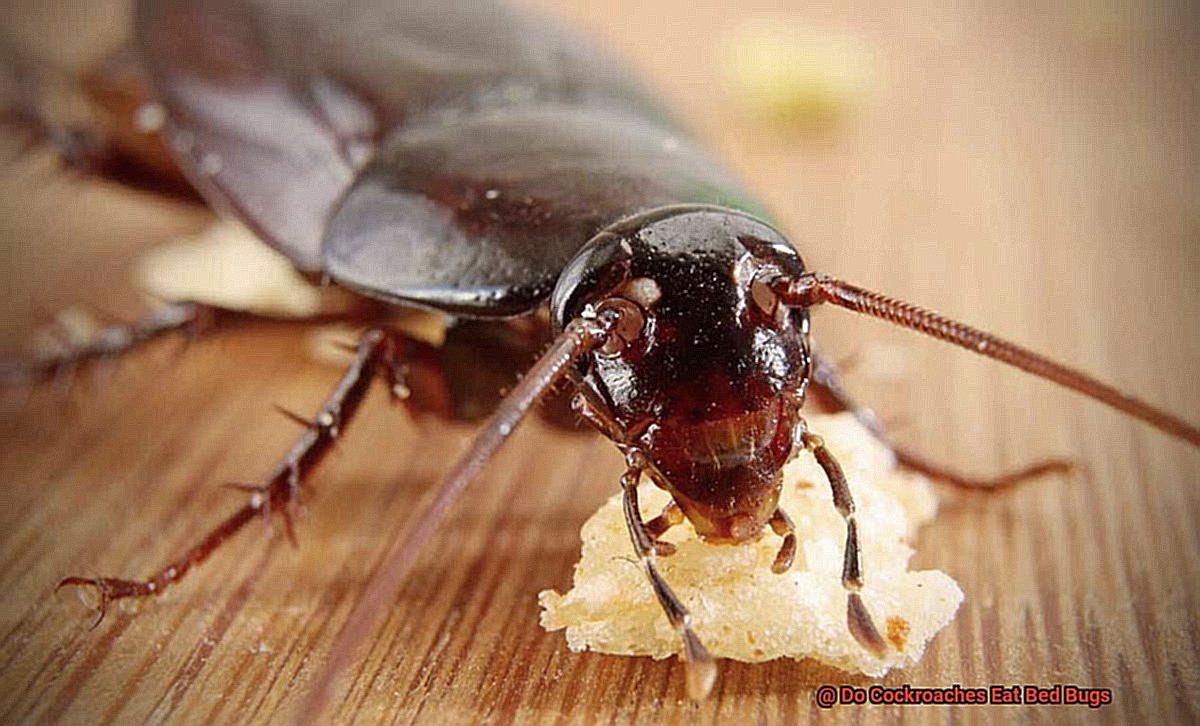
When the roaches walk through the powder, it sticks to their bodies and causes them to dehydrate and die. It’s important to remember that while these methods may deter cockroaches from feeding on bed bugs, they won’t solve the underlying problem.
The best way to eliminate a bed bug infestation is by contacting a pest control professional who can identify the source of the infestation and come up with a treatment plan that is safe and effective.
How Can You Keep Cockroaches Away from Bed Bugs?
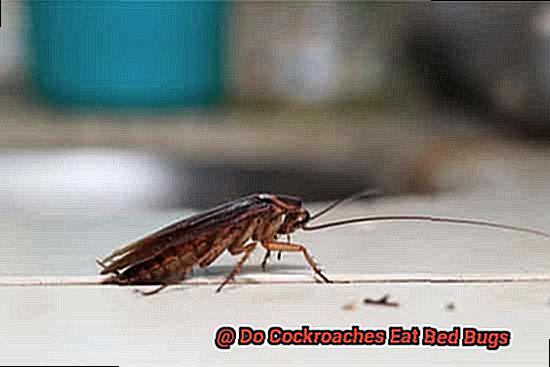
With a few easy steps, you can keep cockroaches away from bed bugs and enjoy a pest-free environment. The first step to keeping cockroaches away from bed bugs is to maintain a clean and clutter-free environment.
Cockroaches are attracted to crumbs, spills, and other food sources, so it’s essential to keep your home spotless. Regular vacuuming, especially in areas where you eat or prepare food, and wiping down surfaces with soap and water can help eliminate attractive food sources for these pests.
In addition to cleaning, sealing up any cracks or holes in walls or floors can also help keep cockroaches out of your home. These pests can squeeze through even the tiniest gaps, so be thorough in your inspection.
Use caulk or foam to seal any openings you find. If you want to take it a step further, consider using natural repellents to deter cockroaches from entering your home.
Essential oils like peppermint, eucalyptus, and lavender have been proven to repel roaches. Simply place a few drops on cotton balls and place them around your home, creating a safe and fragrant barrier that will keep those pesky pests at bay.
Finally, if all else fails, try using sticky traps or bait stations to catch any cockroaches that manage to sneak into your home. These can be found at most hardware stores and provide a safe and effective way to control cockroach populations.
Are There Any Benefits to Having Cockroaches Around Bed Bugs?
While it may seem like a viable solution, relying on cockroaches to deal with bed bugs could actually make things worse.
For starters, cockroaches are notorious carriers of harmful bacteria and diseases such as Salmonella and E. coli.
Having a cockroach infestation could make it harder to get rid of bed bugs since both pests can coexist in the same environment. Therefore, any benefits that come from having cockroaches around bed bugs are not worth the risks.
While it’s true that cockroaches may eat some bed bugs, they are unlikely to have a significant impact on the overall population. In fact, studies have shown that cockroaches can attract bed bugs since they create warm and humid environments that bed bugs thrive in.
This makes relying on cockroaches even more counterproductive when trying to control a bed bug infestation. Instead of relying on these disease-carrying pests, it’s crucial to address pest infestations promptly and thoroughly using safe and effective methods that do not pose health risks to humans or the environment.
Calling in professionals to deal with bed bugs (or cockroaches) is always the best solution. In conclusion, while it may be tempting to rely on cockroaches to solve your bed bug problem, it’s not a good idea.
The potential benefits are insignificant compared to the risks associated with cockroach infestations.
Conclusion
In conclusion, while cockroaches are known for their scavenging ways and ability to consume almost anything, including bed bugs, they are not a reliable or effective solution for controlling a bed bug infestation.
Although some species of cockroaches have shown the ability to hunt bed bugs in laboratory settings, there is no conclusive evidence that they actively feed on bed bugs in the wild. Additionally, relying on cockroaches can actually worsen the problem as they can carry and spread bed bugs to other areas of your home.
Rather than relying on cockroaches, homeowners should focus on proven methods such as regular cleaning and sealing up cracks and crevices in their homes to eliminate hiding places for bed bugs. Professional pest control services can also effectively eliminate bed bugs from homes using methods such as heat treatment or insecticide application.
While it may be tempting to use natural predators like cockroaches as a solution to pest problems, it’s important to remember that they pose health risks and should be eliminated from homes.

